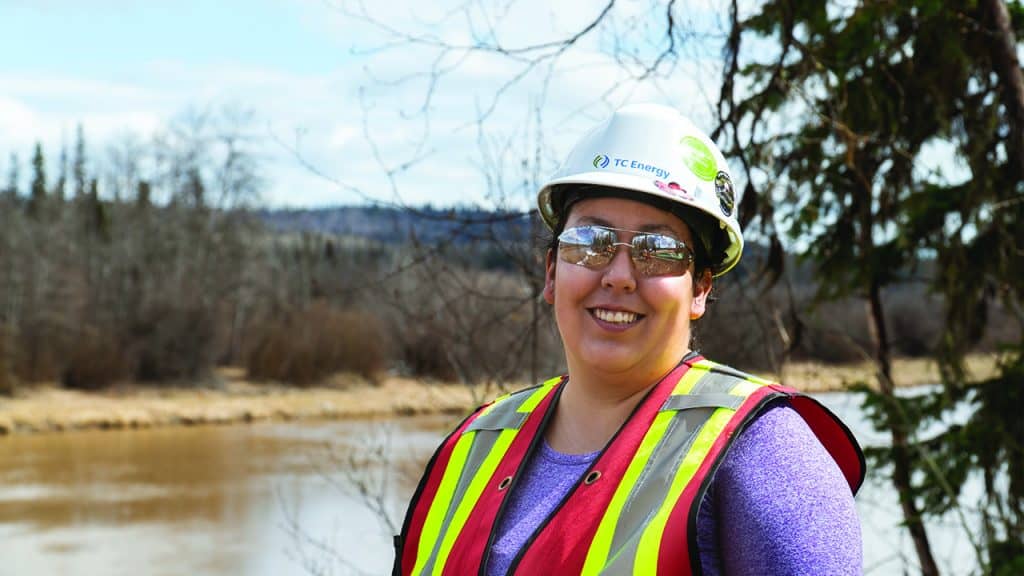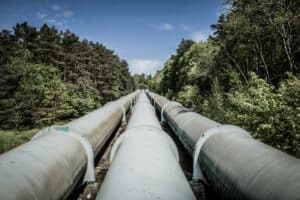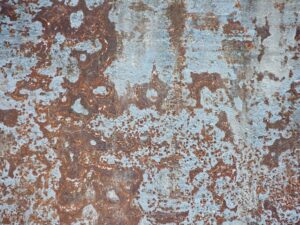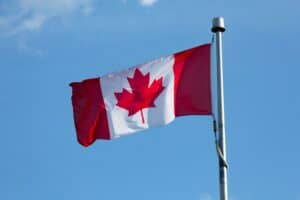The scene at the Wet’suwet’en First Nation Cultural Camp is inspiring. Band members, both young and old, camping, hiking and berry-picking; elders teaching the younger generation how to make and cook bannock on a fire, and how to make home-made hammocks and carry babies in them. The sharing of traditional language is another new experience for many of these young people.
How did this come about? When Coastal GasLink (CGL) approached the nation with a proposal for a pipeline that would run across unceded Wet’suwet’en territory, they asked “what can we help with?”. In addition to the obvious, including jobs, training, education and revenue to the community, the council asked for a Culture Camp – a facility were they could revive and reinforce their cultural traditions.
Stories such as this are why the First Nations LNG Alliance is working hard to teach other First Nations communities how they could benefit by partnering with resource companies in responsible LNG development.
We spoke with Karen Ogen-Toews, CEO of the Alliance to ask why their organization is important:
Question: What is the purpose of the Alliance
Answer: The Alliance exists to support organizations who choose to work with the LNG industry, and to provide information and build awareness for those who could benefit.
We have nine members in the Alliance and a majority of them has signed an agreement with CGL for pipelines to cross their lands. They are already seeing benefits from the partnership, and once the pipe is in the ground, they’ll start receiving legacy payments for up to 25 years.
Question: Why is this important?
Answer: We have poverty issues within our communities, housing issues, drinking water issues. We can’t overcome them because the current system isn’t working. The nations that have signed up with CGL are creating wealth within their own communities.
There’s no reason, in a good country like Canada, with its wealth of natural resources, why Indigenous people should be living in poverty. We should be getting a fair piece of the pie so our communities can be sustained in a culturally relevant way.
We have four pillars in our nation – housing, language and culture, education and training, and health and wellness. The money made from working with CGL is funding each of these four pillars and helping to create long-term prosperity in the communities.
Question: How do your people feel about the pipeline?
Answer: Our people are divided on this issue. The elected councils see the benefits and want to forward these partnerships, but there are some hereditary leaders who see it as an issue of Aboriginal rights and title.
I believe we all want Aboriginal rights and title, and we can work with CGL while protecting our environment. In fact, the partnership has the potential to help revive our culture, as seen in the story of the Wet’suwet’en First Nation Cultural Camp.
We need to find a way to sustain our people economically and culturally, and we can’t just resist every project that comes along. At some point we need to sit down and talk and work out how we can take advantage of the opportunity to sustain our people economically based on our values and traditions and customs.
Question: What about protecting your lands?
Answer: When we are actively involved in these projects it gives us the ability to have a say in how they are managed. It’s important to us that they’re sustainable and that they follow the highest environmental standards. We need to be involved to make sure that all our waters and streams and culturally important sites are preserved, and CGL has ensured that we are involved – including observing the work being done through the Construction Monitoring and Community Liaison program.
The days are gone when the government could just put transmission lines, railways, and highways through First Nations’ land without consultation or accommodation. Now the laws are changing, they must sit down with us, and we can ensure that projects are completed sustainably and respectfully.
Question: Why are some people so opposed to the pipeline?
Answer: When people hear the word pipeline, they immediately think of the negative connotations associated, such as oil spills and environmental damage. The CGL pipeline is a natural gas pipeline and subject to the most stringent environmental standards in the world.
The opponents are all talking about how this new line is going to pollute the waters and the land and everything else in it. What they don’t mention is the fact that the PNG LNG pipeline has been going through our territory since 1968, safely crossing rivers and streams. Of course, you also have Hollywood celebrities, who do not understand the full story including Indigenous support for this project, and the media perpetuating that divide, which doesn’t help.
Question: Do you have anything to add?
Answer: As hereditary chiefs and elected councils we can’t just keep on administering poverty. We need to take a new path forward, which is a tough path, because it looks like we’re fighting with our own people and that’s not what we want to do. We want to take care of our people, maintain who we are, protect our cultural practices and live our lives in a way that’s culturally relevant within today’s economy. We have an opportunity here and we don’t have to compromise our values, traditions, or customs in order to support our people.
Learn more about the First Nations LNG Alliance
First Nations across BC are now working cooperatively with LNG developers to build wealth for their communities and protect their culture and their values. To find out how they are benefiting from responsible LNG development you can read their stories here.




